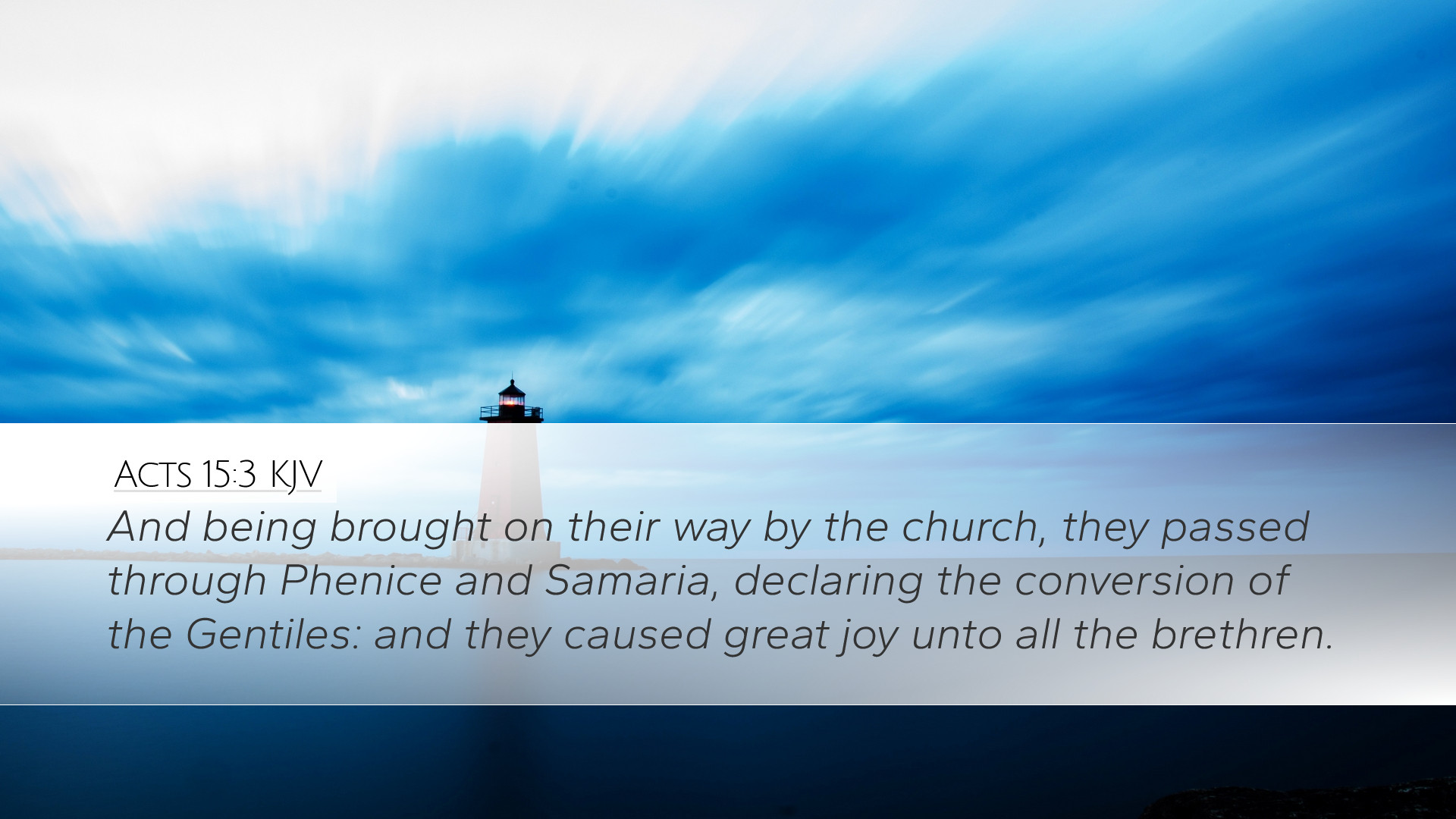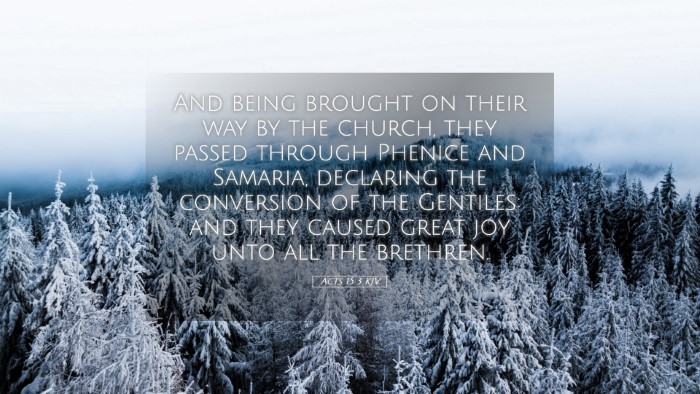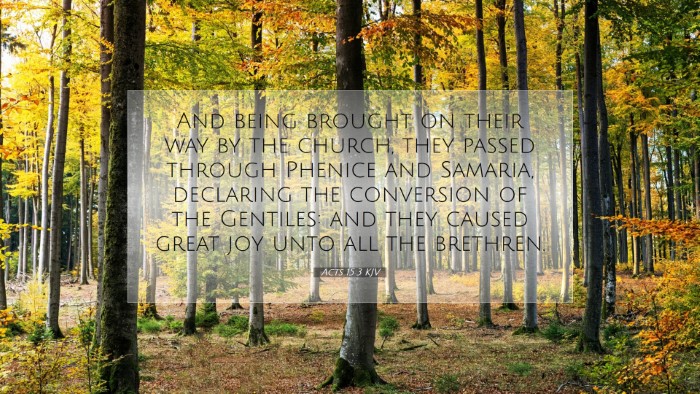Commentary on Acts 15:3
Acts 15:3 states: "Being brought on their way by the church, they passed through Phenice and Samaria, declaring the conversion of the Gentiles: and they caused great joy unto all the brethren."
Introduction
This verse falls within the larger narrative of the early Church as it grapples with the implications of the spread of the Gospel to the Gentiles. The missionary journey of Paul and Barnabas, as they return to Jerusalem, marks a pivotal moment in the expansion of Christianity beyond its Jewish roots.
Contextual Background
The backdrop of Acts 15 involves a crucial meeting regarding the inclusion of Gentile believers into the Jewish-Christian community. As such, their journey back to Jerusalem after their missionary endeavors is significant in affirming the inclusion of Gentiles as part of God's redemptive plan.
Analysis of the Verse
Bringing Them on Their Way
"Being brought on their way by the church" indicates the support and fellowship that characterized the early Christian community. Here, Matthew Henry points out the importance of communal encouragement in the mission of spreading the Gospel. The church acts not only as a sending entity but also as a nurturing body, reinforcing the idea that missions are a collective effort.
Passing Through Phenice and Samaria
The mention of Phoenicia and Samaria serves both geographical and theological purposes. Albert Barnes elucidates that this journey highlights the diverse regions affected by the message of Christ. Each stop provides an opportunity for sharing the testimony of God’s work among the Gentiles, thus building bridges among ethnic groups and fostering unity within the Church.
Declaring the Conversion of the Gentiles
The central theme of their declaration focuses on the conversion of the Gentiles. Adam Clarke emphasizes that this was a monumental testimony to God's grace, affirming that salvation is extended to all peoples, not confined to Israel alone. This would not only encourage the believers of the time but also validate the missionary efforts in confronting traditional views that limited God's grace.
Causing Great Joy
The outcome of their testimony—“they caused great joy unto all the brethren”—is particularly important. Joy is often seen as a hallmark of the Christian experience. Matthew Henry connects this joy to the fulfillment of prophecy and God's promises, underlining that the spread of the Gospel brings hope and gladness, reinforcing community ties.
Theological Implications
Mission and Community
This verse emphasizes the collaborative nature of the Christian mission. The church's involvement in sending and supporting the missionaries serves as a model for modern churches. The mutual encouragement found within the body of Christ is crucial, echoing the sentiments found in Hebrews 10:24-25 about not neglecting to meet together.
Inclusivity of the Gospel
Acts 15:3 provides a clear insight into the inclusive nature of the Gospel. The fact that Gentile converts were celebrated signifies a radical shift in the early Church's understanding of God's redemptive plan. This inclusion is a foundational truth that resonates throughout the New Testament, emphasizing that Christ's sacrifice transcends cultural and ethnic barriers.
Joy as a Response to Salvation
The joy expressed by the brethren highlights the transformative power of the Gospel. Albert Barnes notes that joy is not merely an emotional response but a reaction to the certainty of salvation. This joy reflects the heart of the Gospel—the believer's unity in Christ. Moreover, it serves as a motivating factor for continuing the mission of evangelism.
Conclusion
Acts 15:3 encapsulates a moment in the early Church that is rich with meaning and implications. The support of the church, the declaration of salvific history, and the resulting joy among believers paint a picture of a vibrant community committed to the advancement of God’s kingdom. For pastors, students, and theologians, this verse serves as a reminder of the collaborative essence of mission work, the radical inclusivity of the Gospel, and the joyful response that characterizes Christian fellowship.


